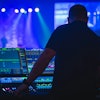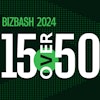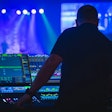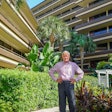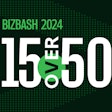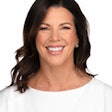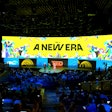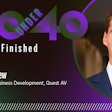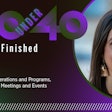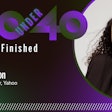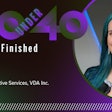How can you immediately spot a tourist in
Portland?
“Locals don’t use umbrellas in the rain” says James Jessie, senior vice President of convention sales at
Travel Portland. “We put on a hat or a hood. That’s how you know someone’s not from here.”
After nearly two decades at Visit Phoenix, Jessie returned last year to Oregon—a homecoming of sorts for the University of Oregon graduate. Connect caught up with Jessie over lunch, where he dished what he wants people to know about “Portlandia,” the meaning of the word “weird” in “Keep Portland Weird” and the state of diversity in the events industry.
What surprised you most about Portland after returning?
The growth of downtown Portland and the explosion of the food and food cart scenes. It was more of a sleepy downtown 18 years ago, but the life of Portland really took off during the time that I was gone.
What’s one secret most people don’t know about Portland?
That’s why I think Portland is different from most cities, because there are no secrets about what we do. Voodoo Doughnut, Salt and Straw ice cream—we don’t keep them secrets here. You’re experiencing the taste that we like to experience. We’re proud of what we produce here and we want you to leave here with all the secrets we know.
In what way did “Portlandia” and other pop culture items affect Portland’s image?
It gave Portland it’s own brand. It allowed Portland to be separated from other Pacific Northwest destinations. It all helps in the end, but the evolution of what’s happening now is based more on the themes of tasting, making and adventuring.
What do you mean by that?
You’ll see that there are not a lot of iconic things here. We don’t have a stage theater or a Golden Gate Bridge. What makes Portland memorable are the tasters, makers and adventurers who capture the whole spirit of the city by taking a product, re-inventing it and making it their own and making it indigenous to Portland. This maker’s culture is part of that “Portland weirdness.” That’s what really brings Portland to life and what makes people curious about us. We do it our own way.
That doesn’t sound too weird.
Well, it is weird because the things that come out of here are produced with our own style and stamp on it. It can be the same product you can buy somewhere else, but we present it in a different fashion. It’s going to have a different vibe to it. We don’t expect you to love it or like it, but we want you to leave with an authentic Portland experience.
What is an interesting innovation you’ve seen in regards to destination marketing?
Innovation for us is an approach, not a product or a technology. And the innovative part of our approach is presenting Portland as a gateway to a new experience. What that experience is going to be, we don’t know. But we’ve set the stage for you. There’s something for everybody here.
Are there any new venues or hotels opening up?
We broke ground on the 600-room Hyatt Hotel in October 2017, slated to be completed in December 2019. That will bring us into the ballgame of a true convention destination, which Portland has lacked over the years. In addition to that, Portland is in the midst of a boom in terms of hotel infrastructure. We’re currently at about 7,200 total rooms in our city center downtown; in 2020, that number will be closer to 10,000.
Most destinations lead with their infrastructure; they use new convention districts and hotel development to spur growth in their entertainment value. We started in the opposite direction. The entertainment value came first and now the infrastructure is catching up.
We’re talking during Connect Diversity. How do you include diversity in your marketing approach?
Part of our product development is highlighting diversity—giving center stage to women- and minority-owned businesses that don’t have a lot of space in the local community or the economy in general. The last two years, Portland has hosted My People’s Market, which brought together businesses, cultures, music, fashion and dance all under one roof. This allowed diverse businesses that don’t traditionally have that opportunity to bring their products and culture into a marketplace forum and it encouraged other businesses to diversify their products.
Where do we stand on diversity in the events industry?
I think it’s become real now versus conceptual. Inclusion and diversity is not just checking a box. It’s about taking it to another level, bringing people and products together and making it a true business relationship. It’s not just a to-do list. It’s part of the culture.

